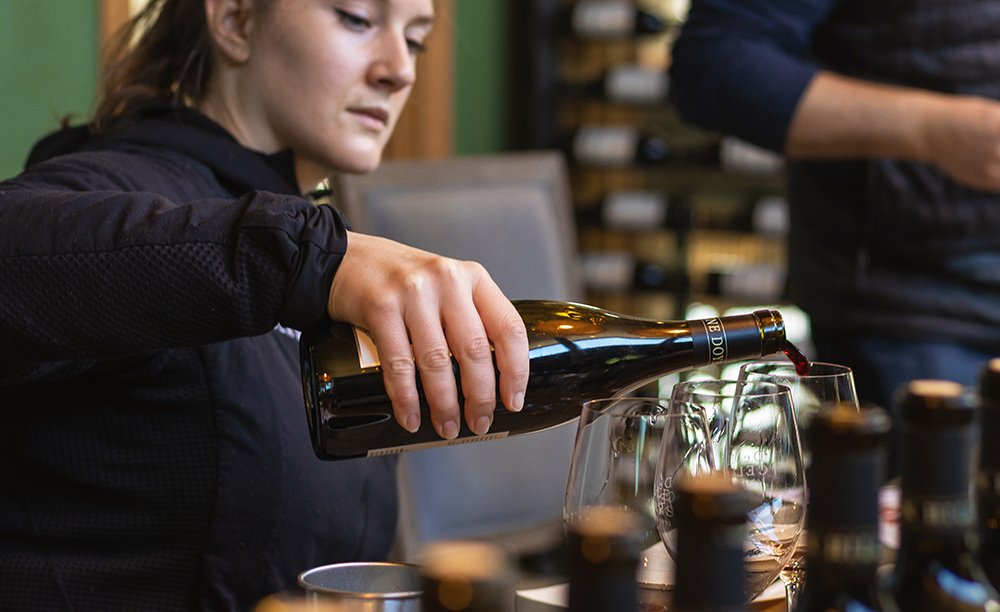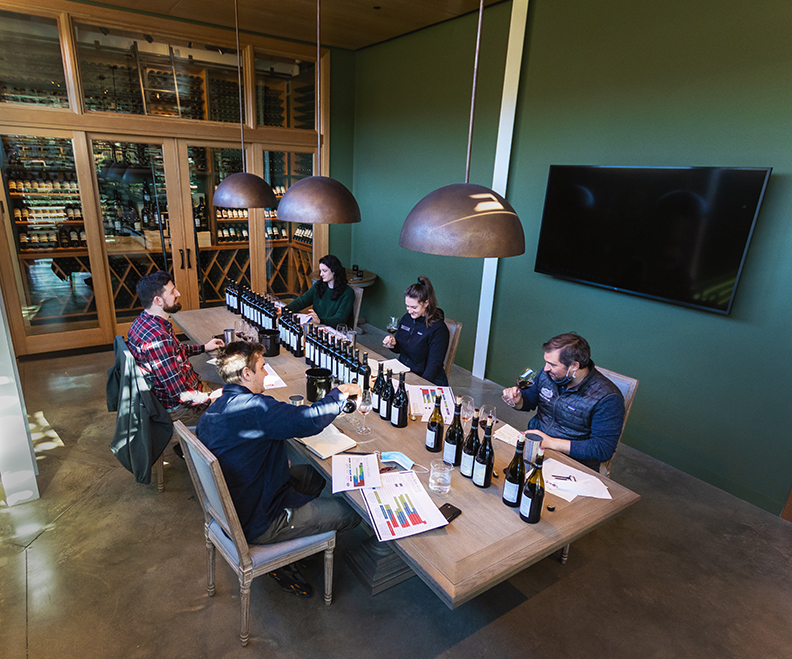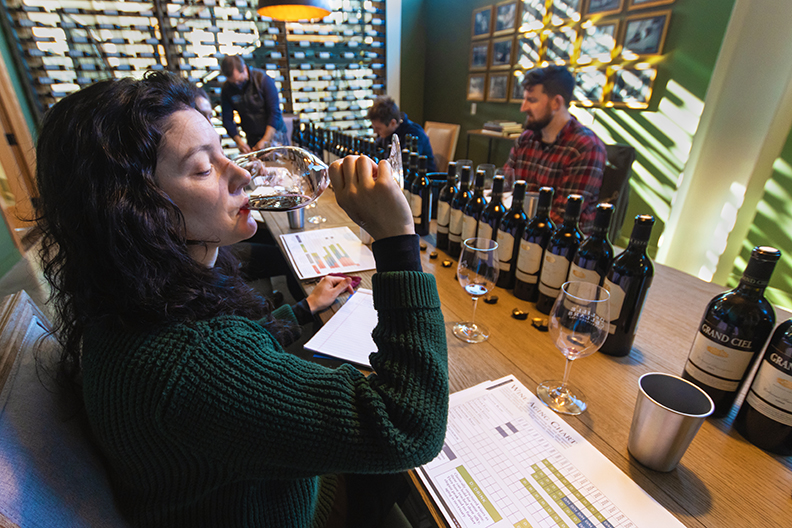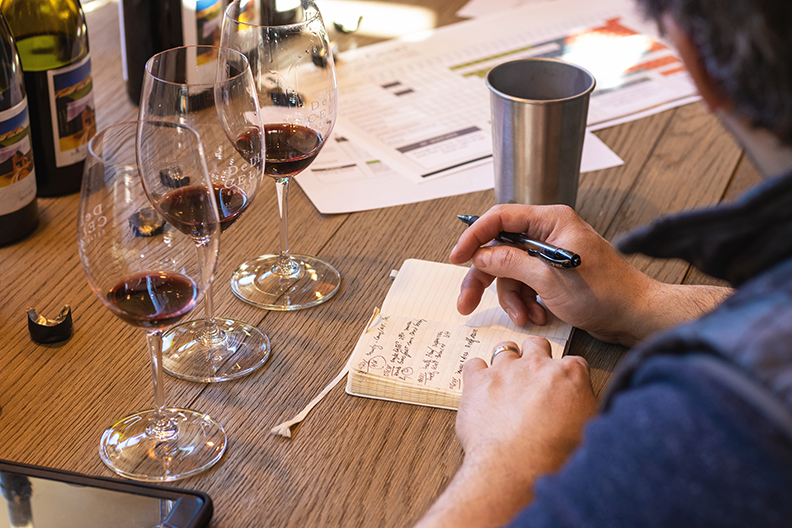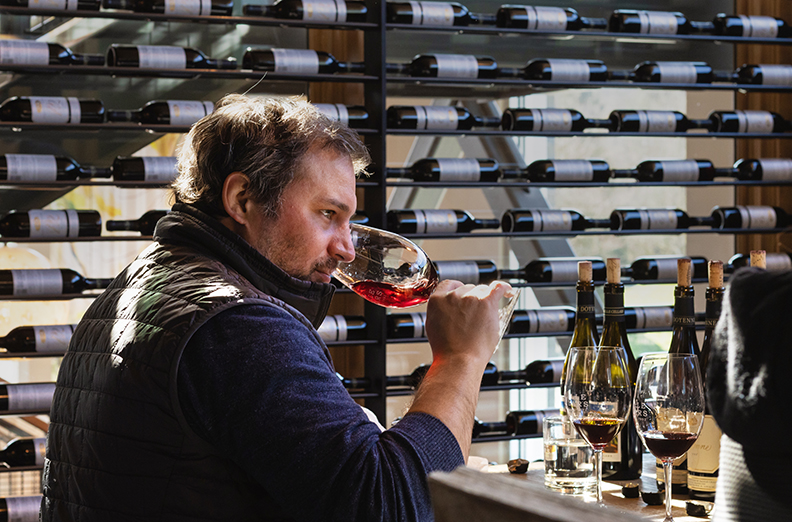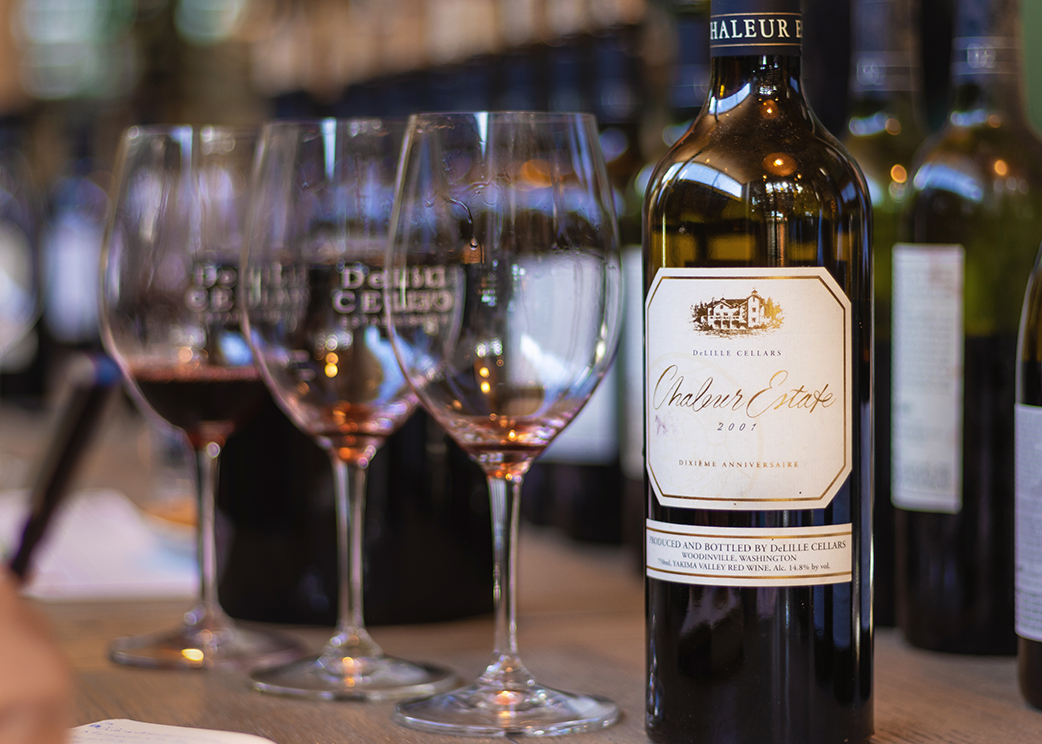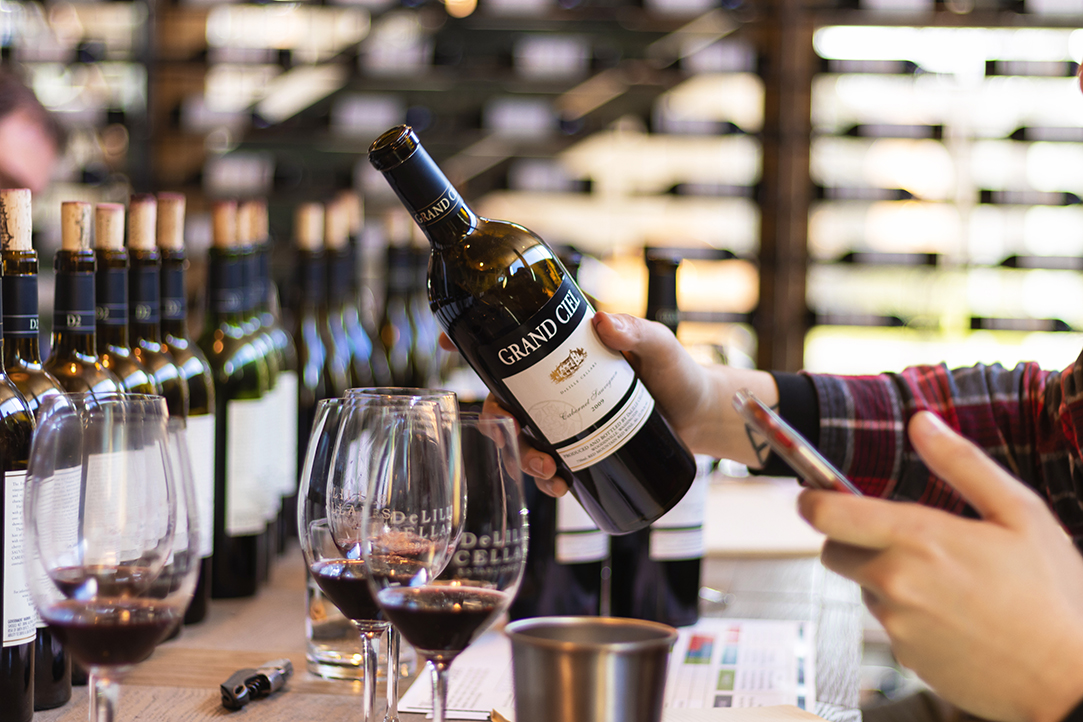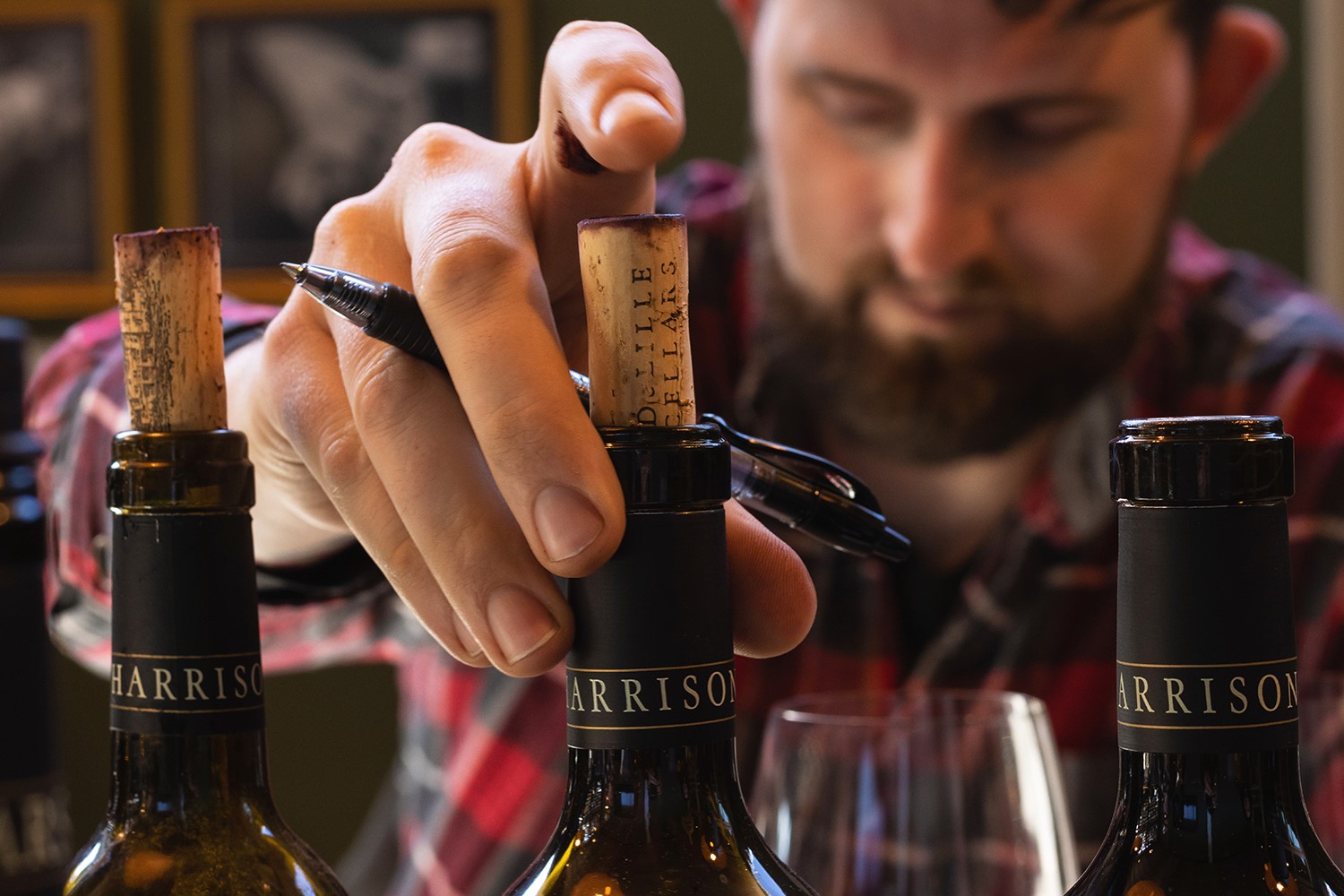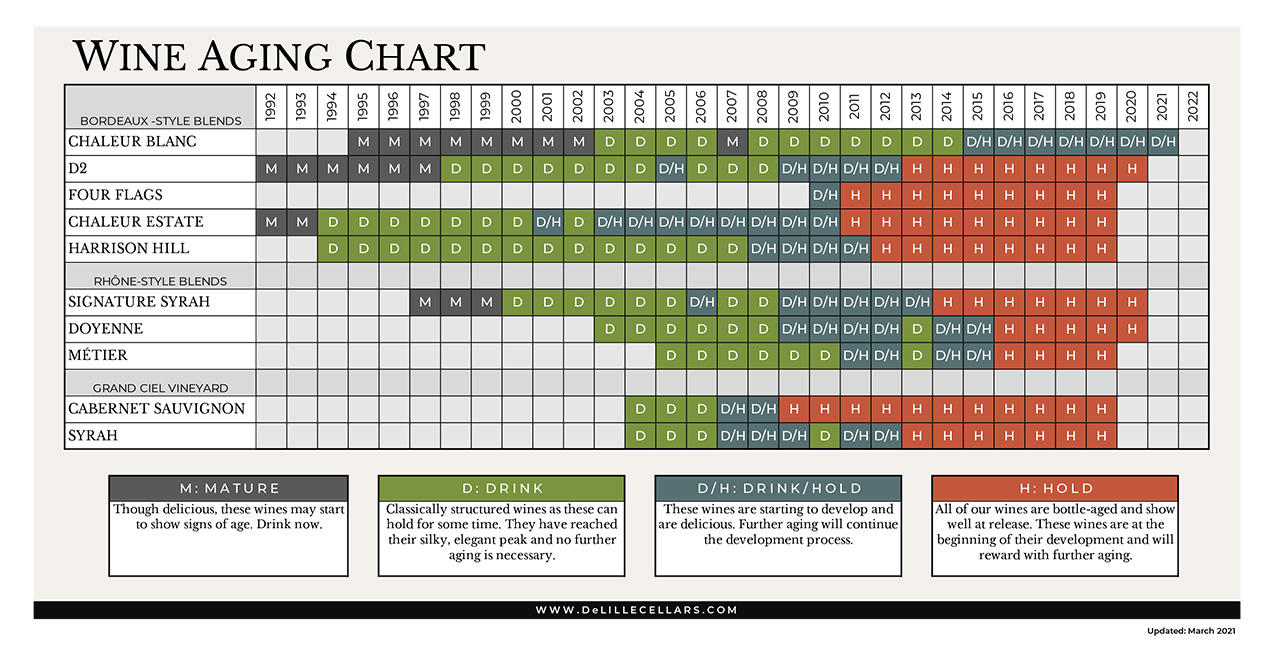Wine Aging Chart
On the 22nd of March, 2021, the DeLille winemaking team assembled to taste and evaluate a considerable number of wines from past vintages, with the primary goal of updating the aging chart. The obviously wonderful side effect, of course, is that we had the opportunity to taste some absolutely delicious older wines! The challenge for us as winemakers is to constantly improve, and that evolution is impossible without understanding the foundation of our style, and how that style has subtlety changed over time to keep pace with consistent improvement in the vineyard, with fine-tuning in the cellar.
Aging Chart Key:
- HOLD wines exhibited only primary aromas and flavors – delicious to drink now, but certain to improve for some time.
- DRINK/HOLD wines exhibited some secondary aromas and flavors associated with aging – time in the bottle has developed and improved the wines beyond their infancy, and further aging will continue to benefit the wine.
- DRINK wines exhibited some tertiary aromas and flavors – drinking beautifully, and likely to continue to do so for several years, but likely at their very peak of enjoyment.
- MATURE wines showed their age – individual bottles may be drinking well, but certainly should be consumed, as further aging will not improve their quality.
Updating the Aging Chart
The actual tasting process involved several vertical tasting flights of several vintages of individual wines. The purpose of a vertical tasting is to isolate vintage variation as the most significant variable and to better understand the evolution of the wines as they age in bottles. Although vertical flights can be tasted youngest to oldest, we elected to taste the older wines first, and started with Rhone varietals; the daunting number of wines on the table made it apparent that palate fatigue from accumulating tannin would come into play.
All the selected wines were turned upright several days prior to the tasting to let them settle and stored in one of our barrel rooms to ensure the temperature of each wine was consistent. Despite the volume of bottles and significant age, we only had a single bottle that suffered from a cork fault (an older vintage, the cork had lost its seal at some point). We pulled two bottles of each wine in preparation, so we were still able to evaluate the wine.
Each bottle was opened and immediately poured to eliminate the variable of exposure to oxygen. We had a Durand wine opener on hand in case we ran into a particularly delicate closure, but an Ah So wine opener proved to be capable enough for each bottle.
